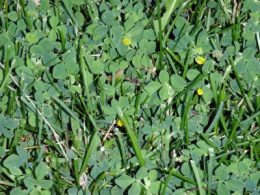Open Enrollment will officially start October 15 and will last until December 7 this year. All drug plans will then take effect January 1. Now some people think, “I do not need to review my options, I like my plan and I will stick with it.” What if I could tell you that by making an appointment, starting in October, and reviewing your options you might be able to save anywhere from $25 to $130 dollars or more! (All savings depend on what plan you were on, what plan you switch to and what medication you are taking. Everyone’s savings are different) Continue reading “Open Enrollment”
National 4-H Week #TrueLeaders
 Nearly six million young people across the country will be celebrating National 4-H Week, which takes place annually during the first full week of October.
Nearly six million young people across the country will be celebrating National 4-H Week, which takes place annually during the first full week of October.
This National 4-H Week, Harvey County is proud to celebrate the #TrueLeaders that make our community great. Every child deserves to be recognized for the great things they are doing. So join us in celebrating them this October by shouting out the 4-H’ers who are #TrueLeaders in your community. 4-H’ers will be showing their pride by participating in contests and service events during National 4-H Week. Continue reading “National 4-H Week #TrueLeaders”
Fall Season Weed Control
 We often don’t think of weed control occurring in the fall of the year. Some weeds need to be treated in the spring such as crabgrass. Late October to early November is the most effective time to control broadleaf weeds in lawns. Dandelions usually produce a flush of new plants in late September, and the winter annual weeds henbit and chickweed should have germinated in October.
We often don’t think of weed control occurring in the fall of the year. Some weeds need to be treated in the spring such as crabgrass. Late October to early November is the most effective time to control broadleaf weeds in lawns. Dandelions usually produce a flush of new plants in late September, and the winter annual weeds henbit and chickweed should have germinated in October.
These young plants are small and easily controlled with herbicides such as 2,4-D or combination products (Trimec, Weed-B-Gon, Weed-Out) that contain 2,4-D, MCPP and Dicamba. Even established dandelions are more easily controlled now than in the spring because they are actively moving materials from the top portion of the plant to the roots in the fall. Herbicides will translocate to the roots as well and will kill the plant from the roots up.
Choose a day that is 50 degrees or higher. The better the weed is growing, the more weed killer will be moved from the leaves to the roots. Cold temperatures will slow or stop this process. Weed Free Zone (also sold under the name of Speed Zone) contains the three active ingredients mentioned above, plus carfentrazone. It will give a quicker response than the other products mentioned especially as temperatures approach 50 degrees.
Fall Bindweed Control
Field bindweed is a deep-rooted perennial weed that severely reduces crop yields and land value. This noxious weed infests just under 2 million acres, and is found in every county in Kansas. Bindweed is notoriously hard to control, especially with a single herbicide application. The fall, prior to a killing freeze, can be an excellent time to treat field bindweed — especially when good fall moisture has been received. This perennial weed is moving carbohydrate deep into its root system during this period, which can assist the movement of herbicide into the root system. Continue reading “Fall Bindweed Control”
Continue reading “Fall Bindweed Control”
Medicare Changes
 Lots of changes are happening in the Medicare world, and it is hard to navigate them all, let along understand them! Great thing your local Extension Agent is here to help!
Lots of changes are happening in the Medicare world, and it is hard to navigate them all, let along understand them! Great thing your local Extension Agent is here to help!
First off, all Medicare card holders will be getting a new card starting this coming April and the Government with be distributing them until December 31, 2019. I think this is great because a lot of our older Medicare card holder numbers are their social security numbers! Yikes! That would be an easy way to get your identity stolen! BUT, with the change of cards, there will be a lot of fraud happening. If you are a Medicare card holder or you know someone who is, please let them know to NOT give their number out to anyone! The Government wouldn’t release who is getting new cards, so how would the person on the phone know you are a card holder? They wouldn’t! Continue reading “Medicare Changes”
Caring For Your Trees
We all know the weather in Kansas can be extreme!
Plants that grow in Kansas have to be tough. Sometimes it doesn’t hurt to help them along a little thought.
Many young, smooth, thin-barked trees such as honey locusts, fruit trees, ashes, oaks, maples, lindens, and willows are susceptible to sunscald and bark cracks. Sunscald normally develops on the south or southwest side of the tree during late winter. Sunny, warm winter days may heat the bark to relatively high temperatures.
Research done in Georgia has shown that the southwest side of the trunk of a peach tree can be 40 degrees warmer than shaded bark. This warming action can cause a loss of cold hardiness of the bark tissue resulting in cells becoming active. These cells then become susceptible to lethal freezing when the temperature drops at night.
The damaged bark tissue becomes sunken and discolored in late spring. Damaged bark will eventually crack and slough off. Trees often recover but need TLC — especially watering during dry weather. Applying a light colored tree wrap from the ground to the start of the first branches can protect recently planted trees. This should be done in October to November and removed the following March. Failure to remove the tree wrap in the spring can prove detrimental to the tree.
4-H Sews a Wedding Dress
 4-H programs date back to 1902, when they first got their start in rural America. 4-H now has a presence all 50 states and over 80 countries worldwide, making it our nation’s largest youth development organization. The 4-H program is rich in history and also in alumni, which means I get to connect with 4-H alums wherever I go. I always enjoy hearing about the experiences and skills that 4-H alumni have had in the program. Recently, I was able to connect with a 4-H alumni who had a hand in preparing my own wedding dress. Continue reading “4-H Sews a Wedding Dress”
4-H programs date back to 1902, when they first got their start in rural America. 4-H now has a presence all 50 states and over 80 countries worldwide, making it our nation’s largest youth development organization. The 4-H program is rich in history and also in alumni, which means I get to connect with 4-H alums wherever I go. I always enjoy hearing about the experiences and skills that 4-H alumni have had in the program. Recently, I was able to connect with a 4-H alumni who had a hand in preparing my own wedding dress. Continue reading “4-H Sews a Wedding Dress”

